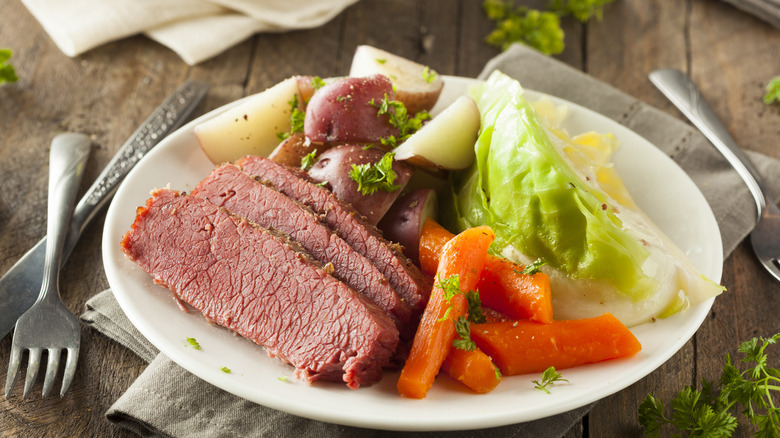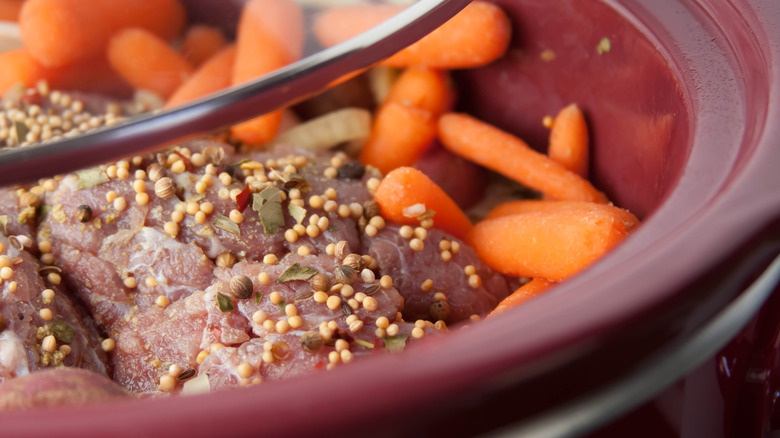The Reason You Shouldn't Cook Corned Beef Over High Heat
Believe it or not, the corned beef we all associate with St. Patrick's Day and the celebration of Irish culture is actually a Jewish dish. According to Smithsonian Magazine, when the Irish immigrated to America in the mid-19th century — concentrating predominantly in New York City — they bought their beef from kosher butchers. The most affordable cut was a brisket that had been salt-cured, cooked for hours in a simmering pot, and served with potatoes and cabbage. Sound familiar?
Brisket is cut just above the front shanks but below the chuck. It's then split in two: the flat brisket and the brisket point. The flat brisket, the leaner of the two cuts, goes on to become corned beef. The brisket point, thanks to its marbling fat, is destined for the barbecue pit (per the Food Network).
For both brisket cuts, there is one rule that is absolutely essential when it comes time for cooking: keep the heat low and let it cook slowly.
For the best corned beef, keep it low and slow
Owing to the nature of the brisket itself, corned beef is built mainly out of a type of tough connective tissue called collagen. Cooking corned beef over high heat will tighten the collagen and result in dry, rubbery meat. Cooking it low and slow allows the collagen to turn to gelatin, therefore creating a moist and tender result (per the Los Angeles Times).
We've discussed in the past the mistake of not using enough marinade to tenderize brisket headed to the barbecue. In the case of corned beef, it's all to do with the brine. Brining, according to Cooks Illustrated, is the process by which meat is soaked in heavily salted water for several hours. The salt acts as an "unwinding" agent for the proteins, thus trapping water and making meat more flavorful and tender. Check out our brine recipe for corned beef.
When it comes to the actual cooking of corned beef, you have a few options to choose from. The Kitchn recommends either a "low, gentle simmer on the stovetop or in the slow cooker" for foolproof corned beef that emerges tender and juicy. Our recommendation is to also cook over low heat for up to three hours.

